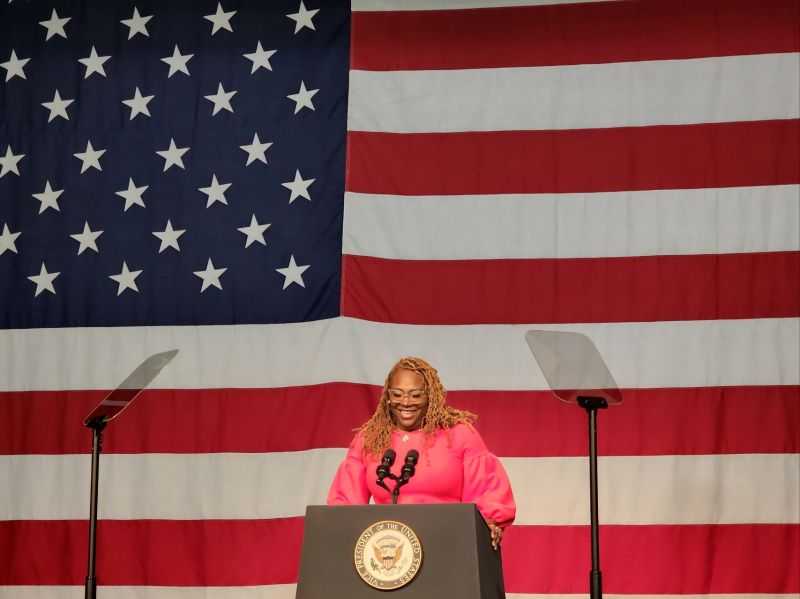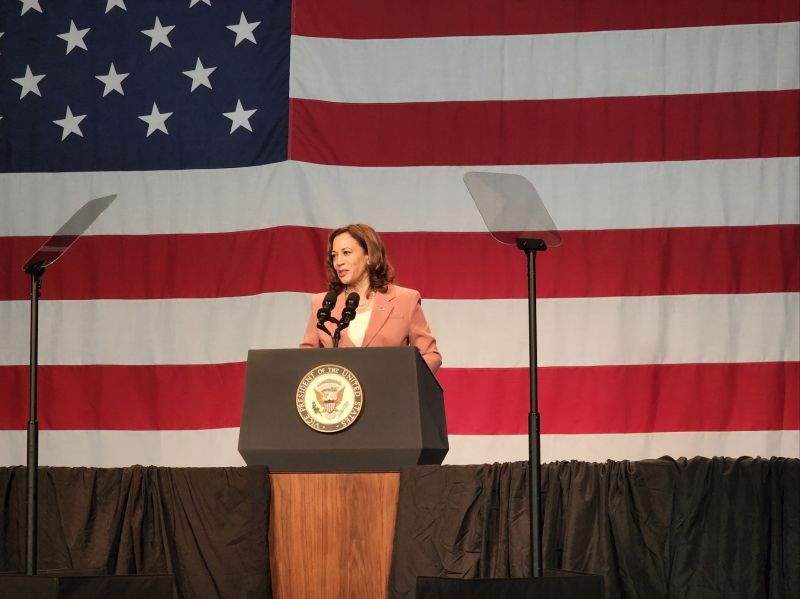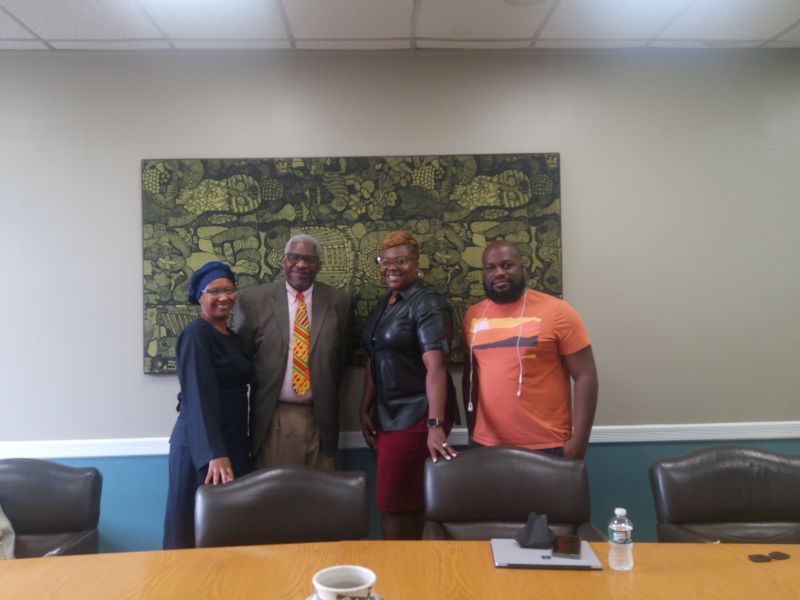NEW YORK CITY– African-American aggregate income only grew half as fast as the United States gross domestic product over the past decade
As the economy cools down after pandemic spending, Vice President Kamala Harris and Treasury Secretary Dr. Janet Yellen came to Restoration Plaza in Brooklyn, site of the first community development corporation, to tout a six-department effort to boost that income.
In 2012, African-American aggregate income of $666 billion was equivalent to four percent of the $15 trillion gross domestic product.With a $24 trillion GDP announced today, the $928 billion African-American aggregate income (based on most recent figures) only grew at a 30 percent rate compared to the 60 percent growth of GDP.
At the personal level, that means a median income of just over $28,000 for African-Americans in 2022, although 6.5 million of the 19 million in the workforce are college graduates.
Vice President Harris announced a new coordinated effort by six federal agencies – the Departments of the Treasury, Commerce, Transportation, Housing and Urban Development, and Agriculture and the Small Business Administration— to maximize federal dollars flowing into underserved communities, including communities of color, rural, and Tribal communities. These federal agencies have signed a Memorandum of Understanding (MOU) to enhance and expand their collective efforts to strengthen access to public-and private-sector capital to address longstanding economic disparities in underserved communities, building on the historic investments in the American Rescue Plan, the Bipartisan Infrastructure Law, and other statutes.
Vice President Harris said, “In our nation, Black entrepreneurs are three times more likely to report they did not apply for a loan for fear of being turned away by a bank. That fear being based on the stories and the experiences of their family, friends, and neighbors.
Black and Latino homeowners are rejected by tri- — traditional financial institutions at a higher rate when applying for home loans. And this is the case even when they have credit profiles that are similar to other applicants.”
Secretary of the Treasury Janet L. Yellen issued the following statement:
“The Treasury Department is committed to unlocking the economic potential of communities of color, low-income neighborhoods, rural areas, and other historically underserved communities. These efforts will help build a stronger and more globally competitive U.S. economy where all Americans have a chance to succeed. Increasing economic opportunity for historically marginalized communities will contribute to our nation’s broader economic growth and benefits the whole country.”
Among those present were Blondel Pinnock, newly named CEO of Bedford Stuvesant Restoration Corporation; LaShawn Allen Muhammad, Executive Director of the Central Brooklyn Economic Development Corp. and Assemblywoman Stephanie Zimmerman, who represents Bedford-Stuvesant. Bedford Stuvesant is planning a new 900,000 innovation campus at Restoration Plaza; Central Brooklyn is breaking ground on a $6 million Bville Hub in Brownsville.
Also present were Mayor Eric Adams, and Lt. Gov. Antonio Delgado.



